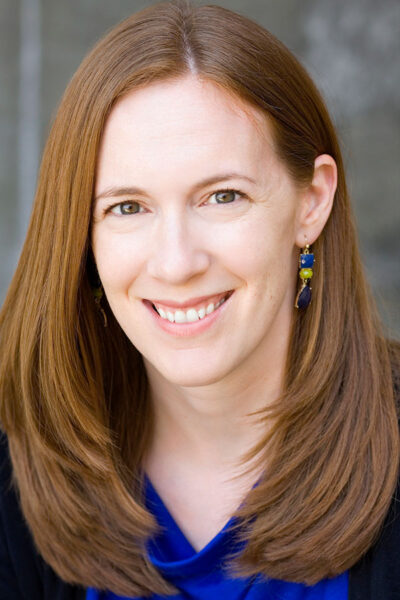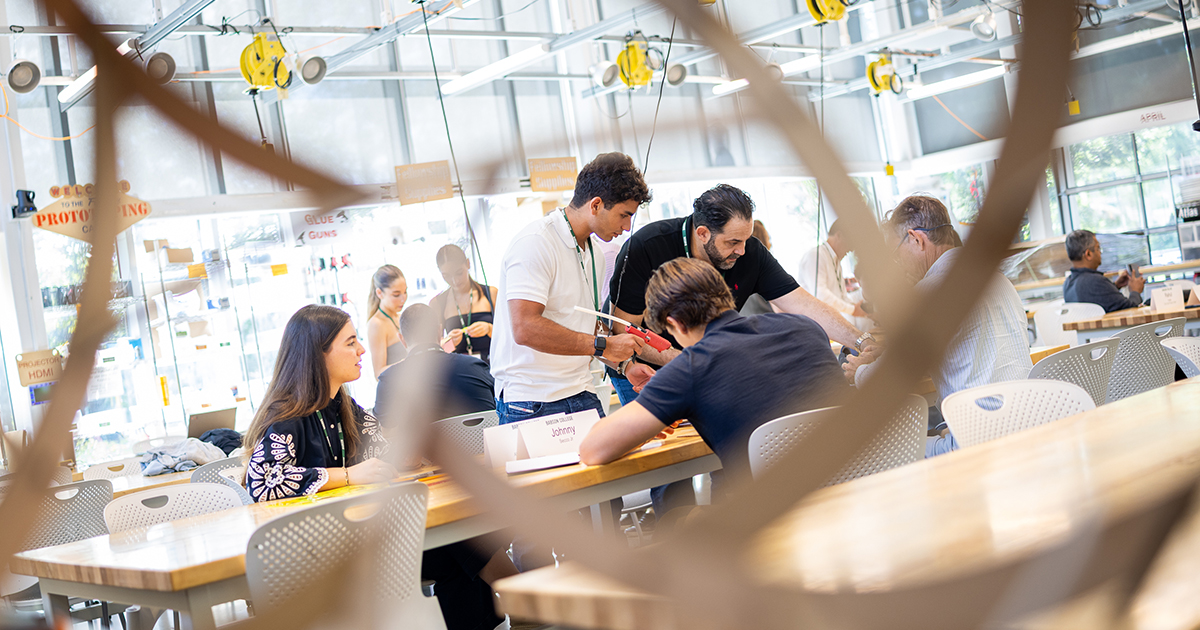Five Thoughts on Finding a Fulfilling Job

At his famous Commencement address at Stanford University, a speech watched millions of times on YouTube, the late Apple CEO Steve Jobs told graduates that they need to find work that they love.
“The only way to be truly satisfied is to do what you believe is great work,” he said, “and the only way to do great work is to love what you do.”
That’s a nice thought, but things in life often aren’t so simple.
The research of Jennifer Tosti-Kharas, professor of organizational behavior at Babson, focuses on career development and the meaning people draw from their jobs. She has been interested in the nature of work ever since she was a child reading Richard Scarry’s enduring children’s book, What Do People Do All Day?
Now, Tosti-Kharas has co-authored her own book on work, Is Your Work Worth It?, and it seeks to answer that very question in all its nuance and complexity. “The book doesn’t pretend to offer any easy answers,” says the Camilla Latino Spinelli Endowed Term Chair. “What we want in our lives is highly complicated and changing.”
Everyone wants to work in a fulfilling job, but what exactly “fulfilling” entails is different for everyone. In an interview with Babson Thought & Action, Tosti-Kharas offers her thoughts on how people can find purpose and pleasure in their careers and what that can mean for living a rewarding life.
Ongoing Reflection

Let’s begin with what should be an obvious statement: You can’t find a fulfilling job if you’re not reflecting on what you want out of work in the first place.
During the turmoil of the pandemic, many people seemed to take stock of their lives. Something similar happened after the attacks of Sept. 11, 2001. “They inherently made people go, ‘What am I doing with my life?’ We saw people leaving jobs without another job at hand,” Tosti-Kharas says. “Crises bring to the forefront that time is limited and that I better examine my choices.”
Such an evaluation of one’s life and career, however, shouldn’t be a rare occurrence brought on by historical events. It should be ongoing. “What if we could get people to think about this absent a crisis?” Tosti-Kharas says. “Shouldn’t we be more intentional about the work we do and choosing to stay in it?”
An Interesting Paradox
When thinking of what a fulfilling job might look like, one might assume it’s a position that engages and inspires workers. Recent survey data, however, casts doubt on that assumption. Tosti-Kharas says that work satisfaction is at an all-time high, while conversely, work engagement is at an all-time low.
Those results are something to puzzle over. Becoming more engaged with a job requires more energy, time, and time away from family, and maybe people have decided not to do that. Could the pandemic, perhaps, have caused them to reprioritize their lives and set boundaries with their jobs? If so, what does optimal engagement look like?
“It is a very interesting pattern of survey results,” Tosti-Kharas says. “We don’t know entirely what it means. What does it mean to be more satisfied to be less engaged?”
Some jobs—clergy, therapists, doctors—may bring a lot of meaning to one’s life, but they may involve too much engagement. People in those jobs may feel like they can never say no to those needing help. “Too much engagement can affect a life,” Tosti-Kharas says. “When work is a calling, there can be a downside.”
Have Patience
Tosti-Kharas sometimes hears from students who wonder if they might not find a passion or purpose for their careers. She tells them not to worry.
Yes, there are some people who have long known they want to be a teacher, say, or a nurse. Others, however, take more of a meandering path to discovering what they want to do with their lives. “There are people who stumble into it,” she says. “They have careers unfold and come to realize, ‘I love this.’ ”
So, don’t pressure yourself to have everything figured out. Instead, take a job and learn what you like and don’t like about it. “The best thing to do is trial and error,” Tosti-Kharas says. “Start by doing something. Take action. Have a job experience.”
Find the Positives
Not every job can have a higher purpose or calling, and that’s OK. “We are by no means saying everyone should have a calling,” Tosti-Kharas says. “We are trying to get people to ask, ‘Why do I work? What am I trying to get from work? Does what I get from work contribute positively to my life?’ ”
The positives one takes from a job can take varied forms. Maybe those positives involve time with friendly co-workers, or travel, or a flexible schedule, or rewarding responsibilities, or, yes, a nice salary.
“We are trying to get people to ask, ‘Why do I work? What am I trying to get from work? Does what I get from work contribute positively to my life?’ “
Jennifer Tosti-Kharas, professor of organizational behavior and the Camilla Latino Spinelli Endowed Term Chair
Ultimately, determining whether a job is meaningful is decided by only one person: you.
Think of cleaners in a hospital. They may think of their work as drudgery, or they may think of it as contributing to the institution’s mission of caring for patients. What matters is their perspective. “It is highly individual,” Tosti-Kharas says. “It is highly subjective.”
More than a Fulfilling Job
Remember that work may be a big part of life, but it is only a part. Instead of asking if you’re working in a fulfilling job, perhaps you need to ask a different, much larger question: Am I living a fulfilling life?
Some people may be defined by their jobs, but others may find their passion elsewhere. For example, some may consider fly fishing their calling and choose to spend their salary and free time supporting it.
“People make those choices. A calling doesn’t have to just exist at work,” Tosti-Kharas says. “What ultimately matters is a meaningful life.”
Posted in Insights




